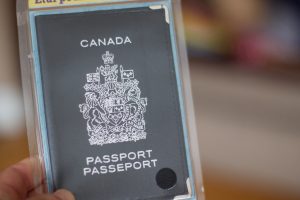
As of August 31, 2017, the Canadian government provides individuals with the option to have a gender-unspecified “X” designation on their Canadian passport and immigration documents, instead of just “M” for male or “F” for female. Immigration, Refugees and Citizenship Canada (IRCC) has enacted interim measures to enable Canadians to add observations on their current passports that their gender should be noted as unspecified, or “X”.
In announcing the change on August 24, Minister of Immigration, Refugees and Citizenship, the Honourable Ahmed Hussein introduced the designation as a means of advancing the Liberal government’s agenda for gender equality, diversity and inclusion. The move is thereby product of the same platform under which Prime Minister Justin Trudeau appointed Member of Parliament Randy Boissonault as Special Advisor on LGBTQ2 issues last year.
Although the X-designation aims to provide a welcomed choice for Canadians who identify as neither male nor female, some have expressed concern over what this may mean for Canadians travelling abroad. While the change reflects an intentioned move towards greater gender equality in Canada, other countries do not necessarily share the same views on gender and sexuality. Many have shared concern that those travelling with the X-designation on their documents may invite discrimination when entering other countries, particularly those in which being LGBTQ2 is currently illegal.
Those sharing concerns regarding the X-designation propose instead that the gender designation be removed from passports and other IRCC documents entirely.